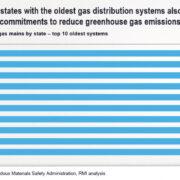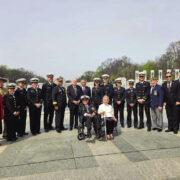THE fault of one man should not be taken as the fault of an entire nation.
This was the point reiterated by President Benigno S. Aquino III, in stating his position over the apology demanded by the Hong Kong government from the Philippines.
“Our position is the act of one individual who is probably mentally unstable at that point in time should not be construed as the act of the entire country,” Aquino told reporters at the annual Presidential Forum of the Foreign Correspondents Association of the Philippines (FOCAP) last Oct. 23.
An inflamed animosity sparked anew over the botched Manila bus hostage crisis in 2010, where eight Hong Kong nationals were killed, with eight others injured after being held hostage by former police officer Rolando Mendoza, in front of the Quirino Grandstand in Manila.
During the sidelines of the Asia-Pacific Economic Cooperation (APEC) summit last month in Bali, Indonesia, Aquino was ambushed by Hong Kong journalists regarding the three-year old tragedy.
“Will you apologize to Hong Kong people for their real tragedy? Will you give an answer? It has been three years,” the journalist asked Aquino. Aquino refused to answer. The reporters were dismissed from the APEC grounds and were never let back in again.
Aquino later met with Hong Kong chief executive Leung Chun Ying, where he emphasized the Philippine government’s sincerest condolences and deep regret on the incident.
He said that he considers the issue closed and that his rendezvous with Leung was “a meeting of the minds” where both of them “understood each others’ positions better after the discussions.”
However, the victims’ families are still seeking an official apology and compensation. To which Aquino, again stood by his earlier point: “When we apologize, then it admits that we’re at fault as a country, as a government, and as a people.”
Last week, Manila Mayor Joseph Estrada offered a formal apology, on behalf of the Philippine capital under the resolution passed by the city council.
“Considering that the unfortunate 2010 hostage-taking incident transpired within the territorial jurisdiction of the city of Manila and that the local government unit’s resources and manpower were utilized in the bungled operation, it is only proper for the chief executive of the local government unit concerned to spearhead the reconciliation and to exert all efforts for a permanent closure and to restore the strained relationship between the Hong Kong Special Administrative Region and the city of Manila,” the resolution states.
Estrada’s representative flew to Hong Kong to meet with the victims’ families to convey the formal apology and to appease their demands. The victims raised four demands; three of them are considered a “done deal.”
“They asked for an apology, the punishment of those who were involved—all of whom are now out of service. Fourth is the assurance that there will be protection for Hong Kong tourists in the future. All are considered ‘done deal’ except the compensation,” Manila Councilor Bernardito Ang said.
Ang offered $75,000 for each of those who died in the incident, $150,000 for those seriously injured, and US$20,000 to $25,000 for the others who were injured. The amount pledged will come from contributions from Hong Kong nationals and from the Filipino-Chinese community in Binondo to be given to the victims’ families.
All parties agreed to keep the dialogue open and not to disclose details at this stage.
The Hong Kong government warned that unless amends are made within a month, they will suspend the visa-free policy granted for Filipinos. The government also threatened to impose unspecified economic sanctions on the Philippines.
The current tension, which threatens bilateral exchanges between these two nations is not likely to reach a conclusion, unless a consensus is made and deemed agreeable by both parties.
Hong Kong’s increased assertiveness, despite the Philippines’ request to delink the strategy from the bilateral relations, may interfere with economic, trade and political transactions.
Instead of a battling aggressive stance, perhaps a more practical solution is managing the tension rationally. The damage has been done. An interaction to start a dialogue on minimizing the issue should come next.
The current dispute has the tendency to bring irreparable damages, after a month of heightened tensions. All units concerned will just have to compromise and compensate for the damages. Resolving differences is still in the cards.
(AJPress)








